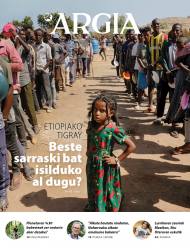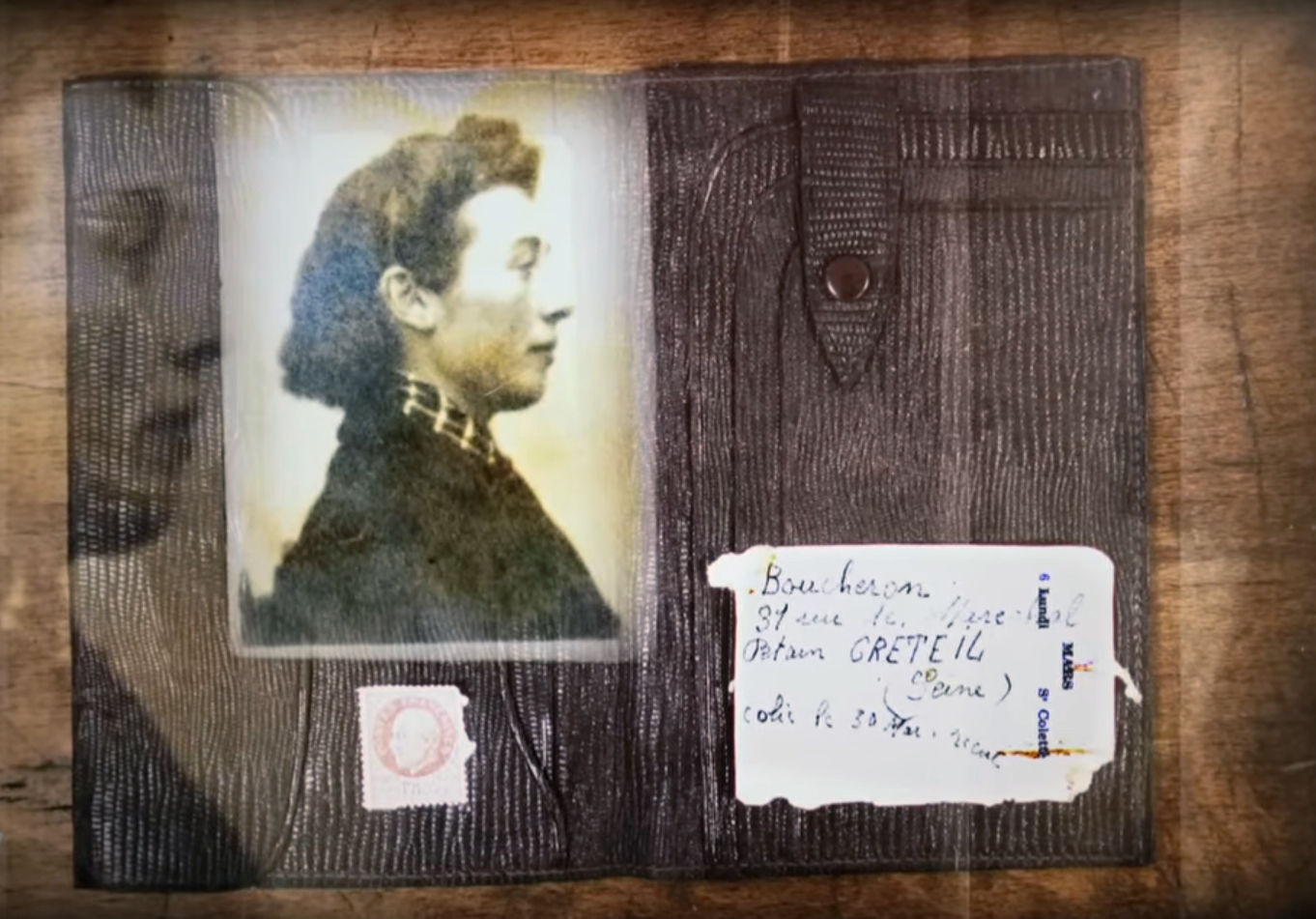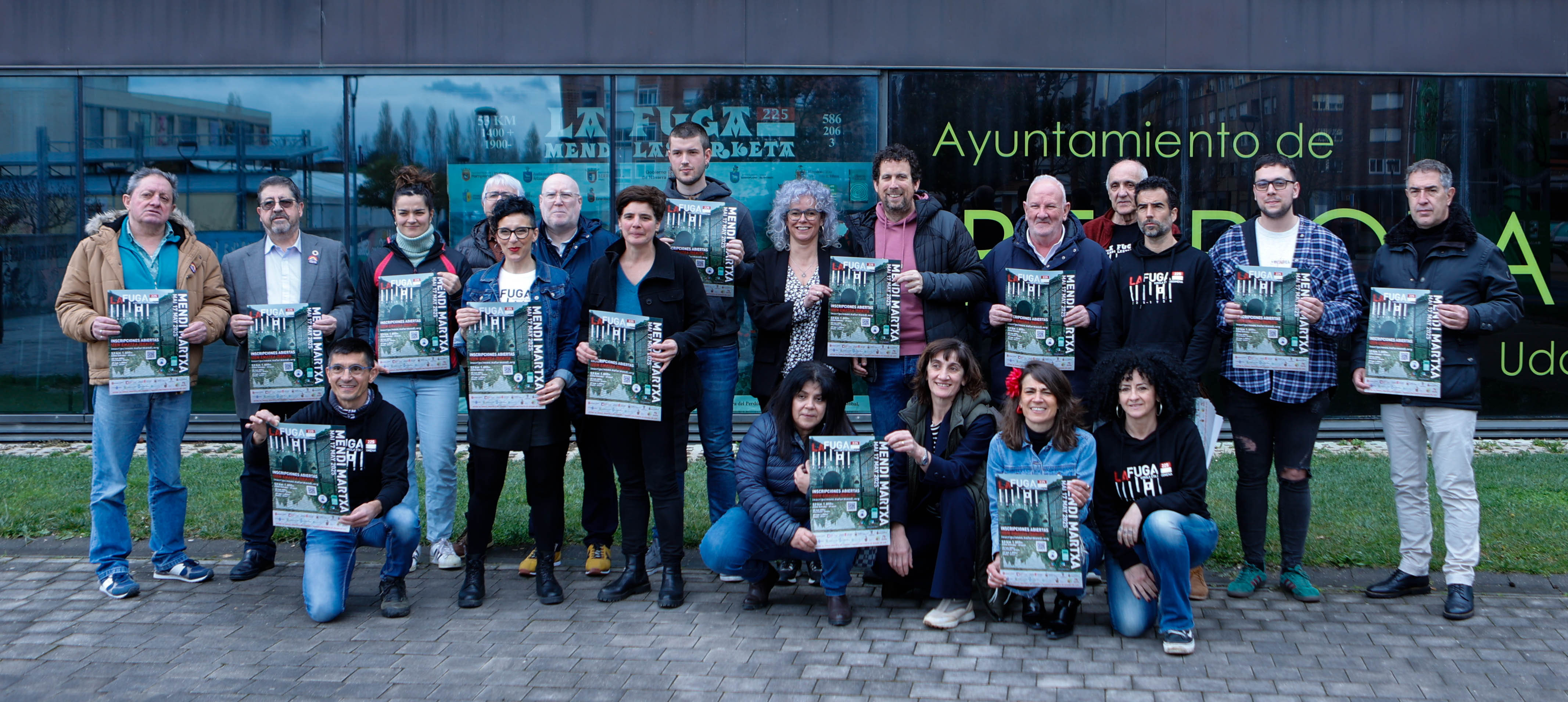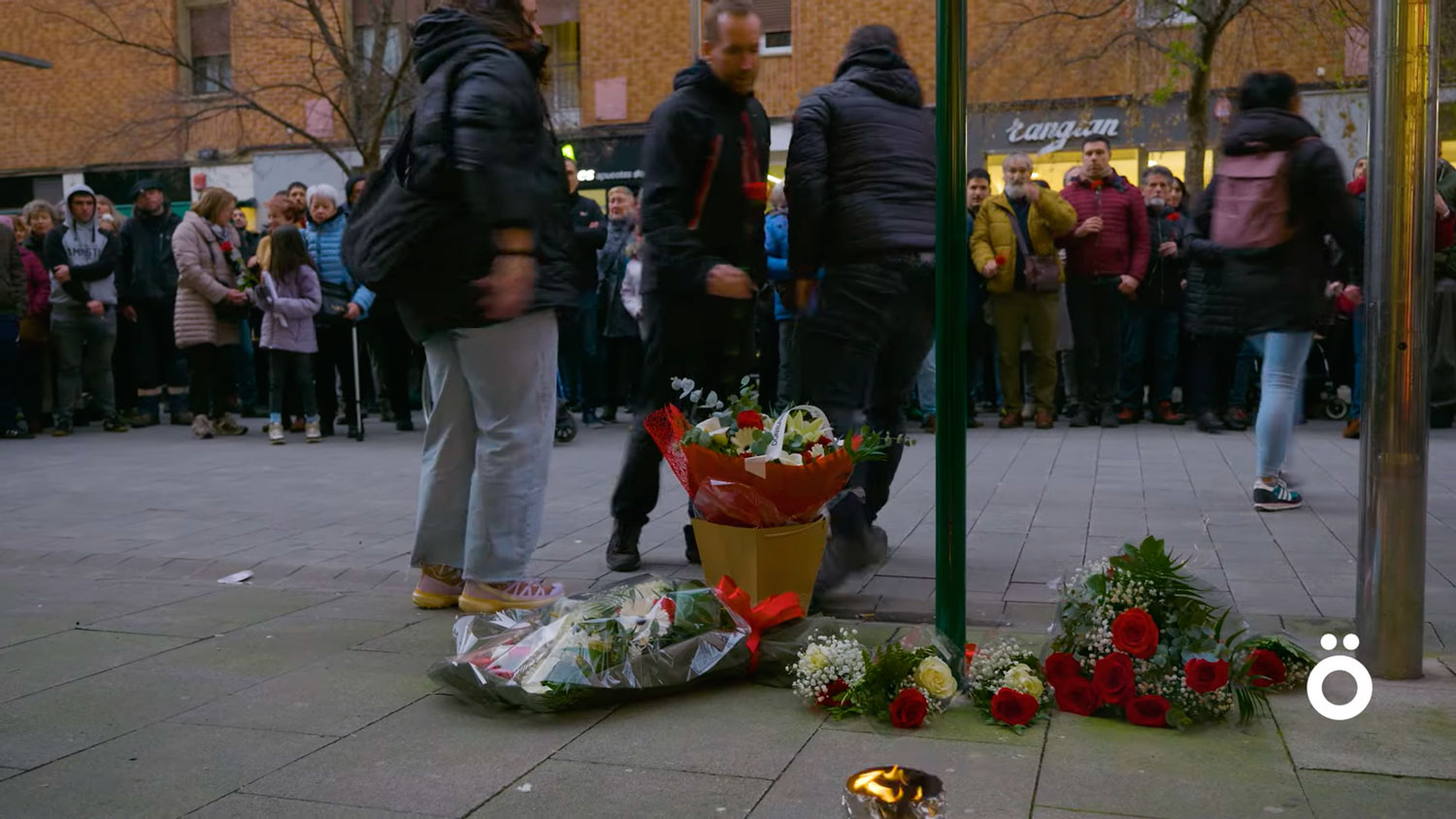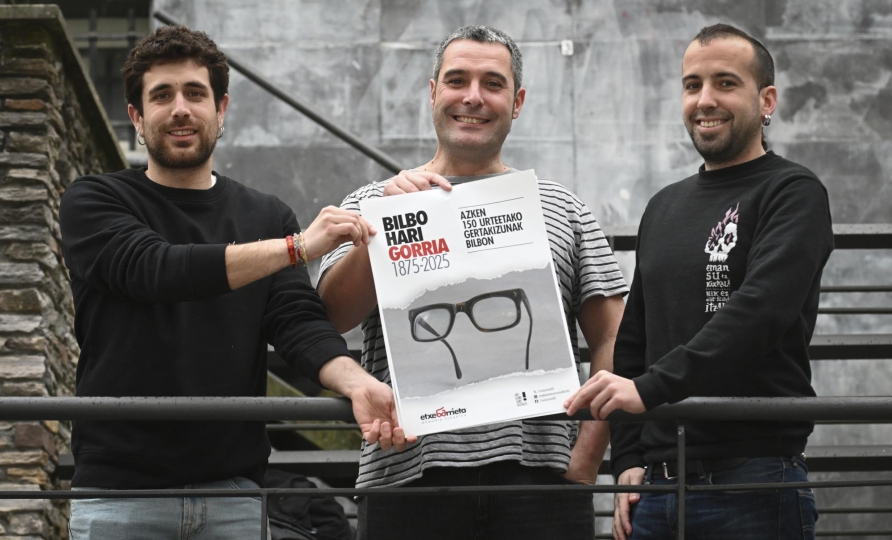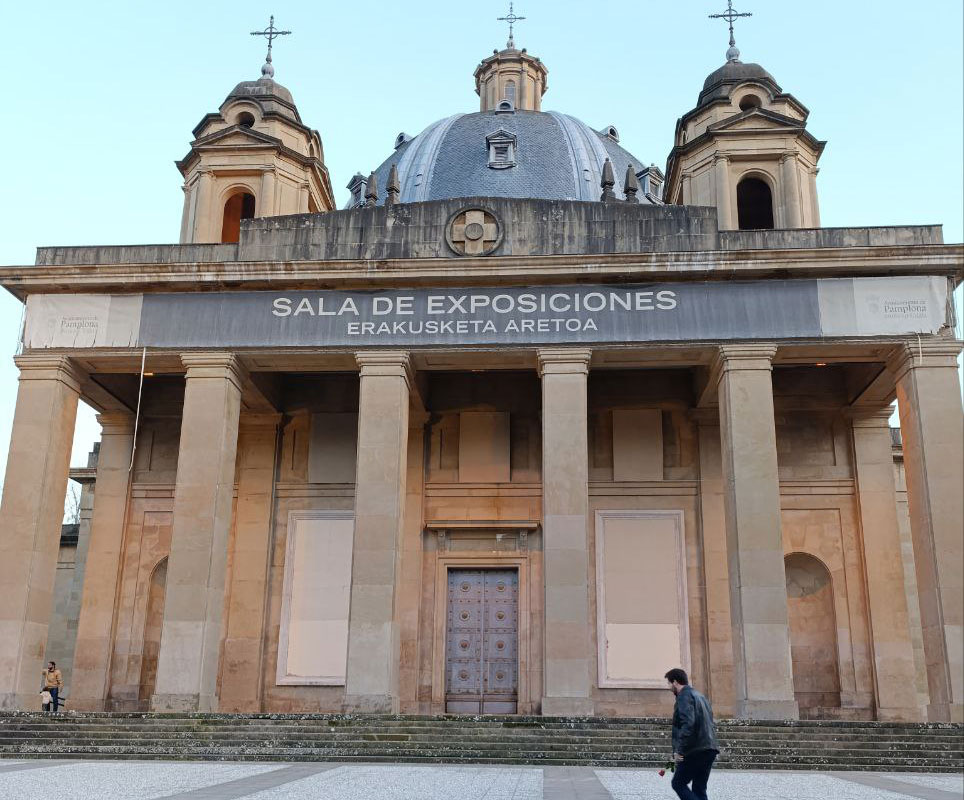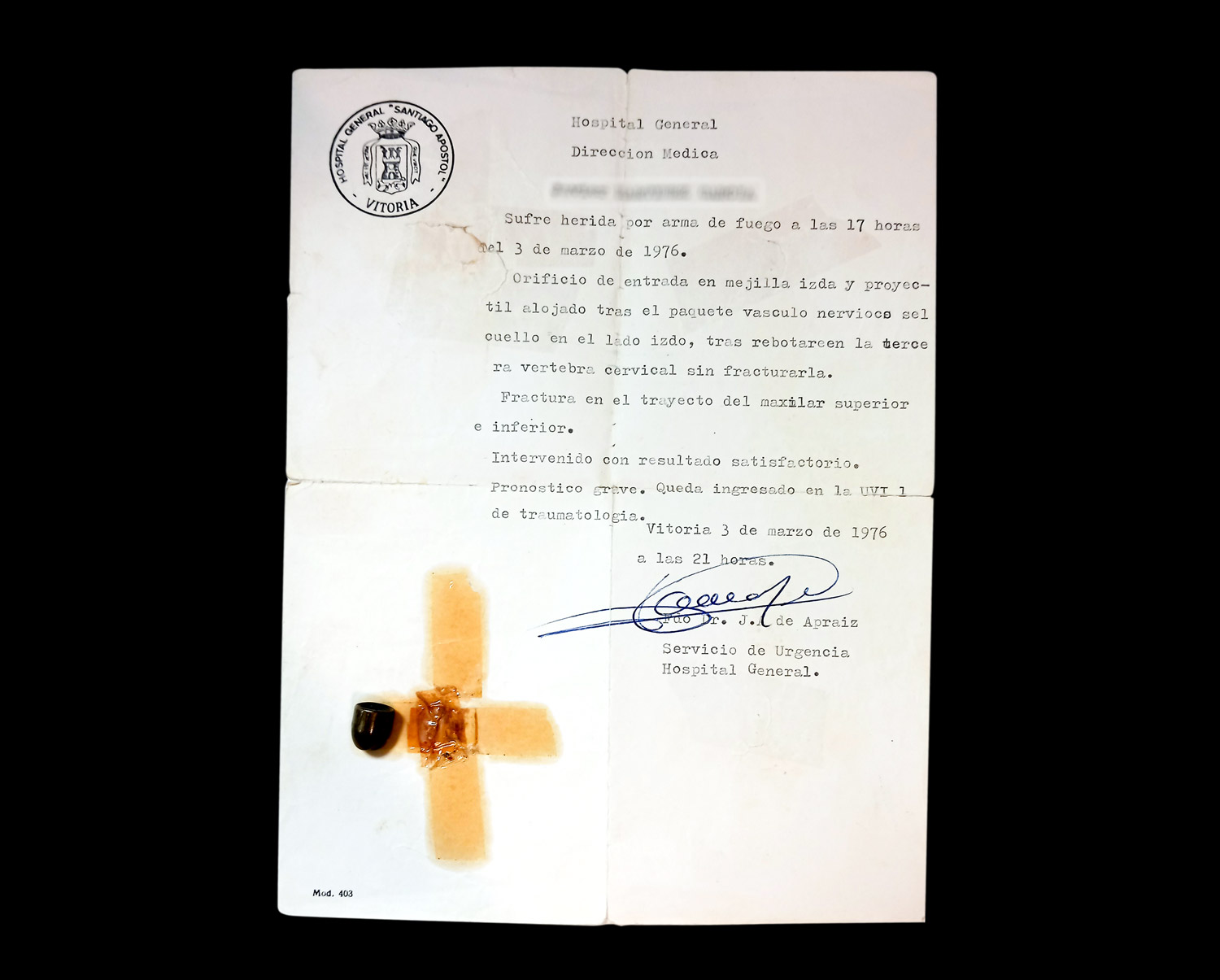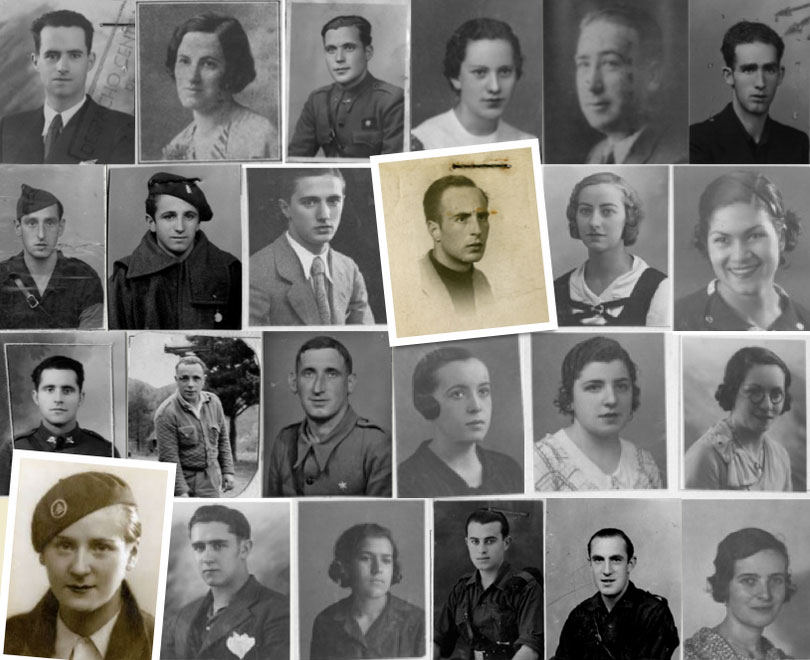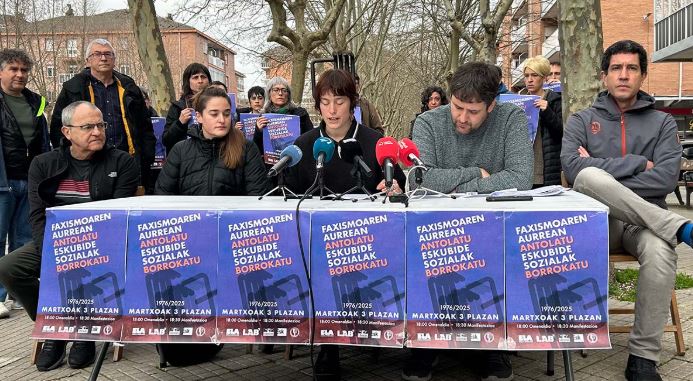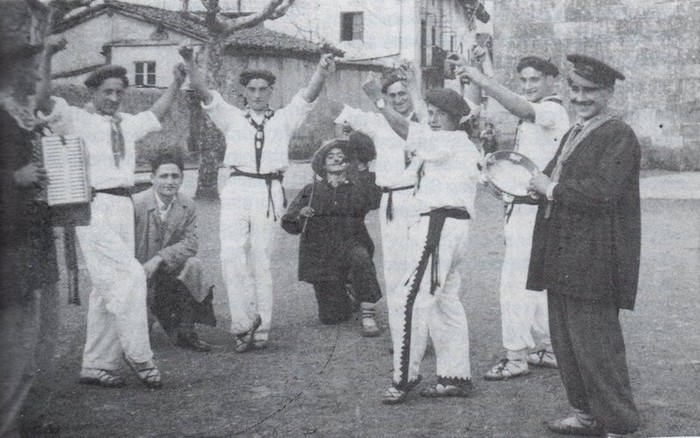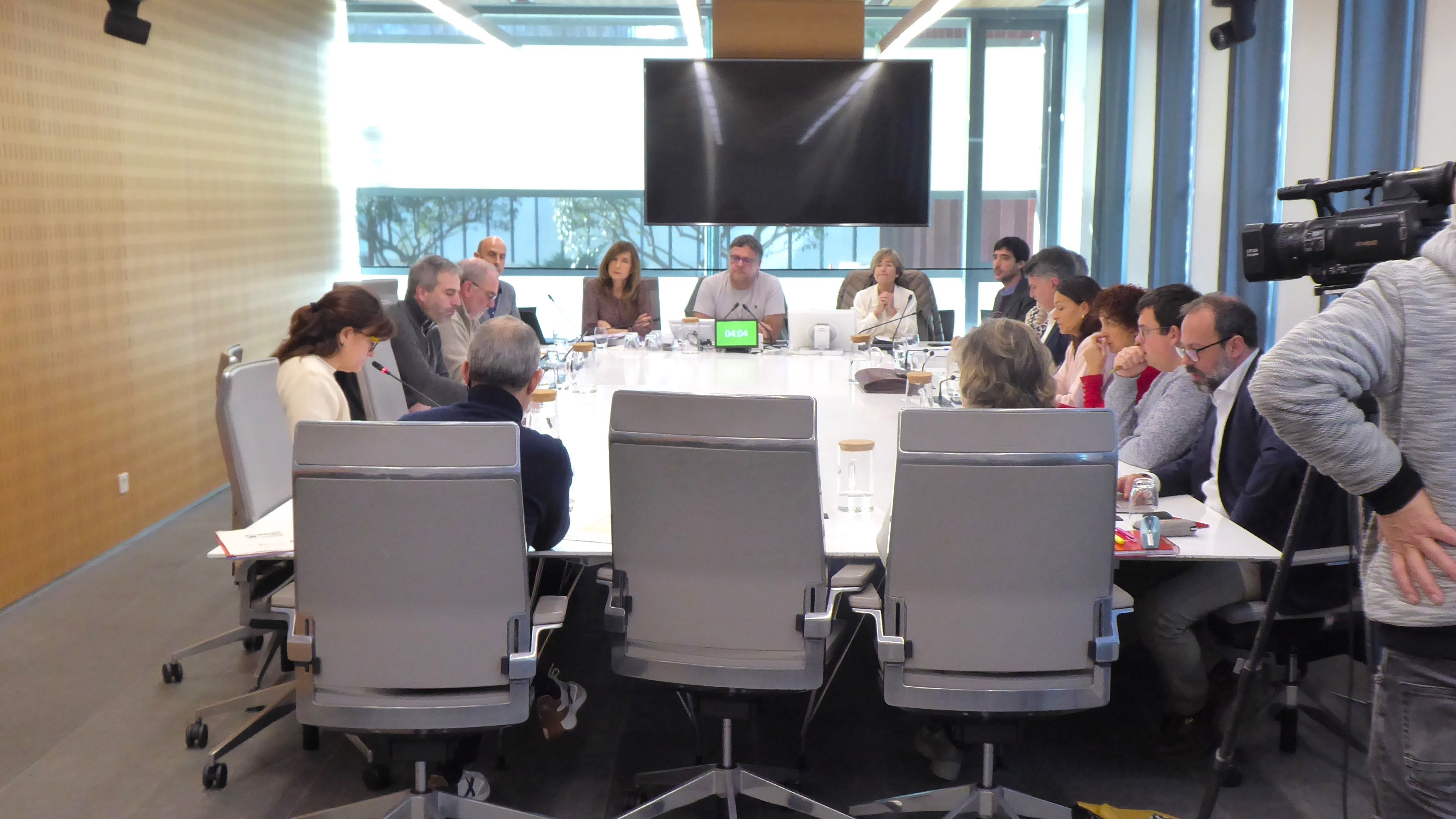"The last of the smuggling he brought was the factory work."
- Navarre, May 1983, municipal elections. The mayors have been formed, they have prevailed over each other. Etxalar’s candidacy, errate, independent, has four councillors and three members are Herri Batasuna (HB). Teresa Sarobe has been elected mayor, she is the first mayor of Navarre with Franco.
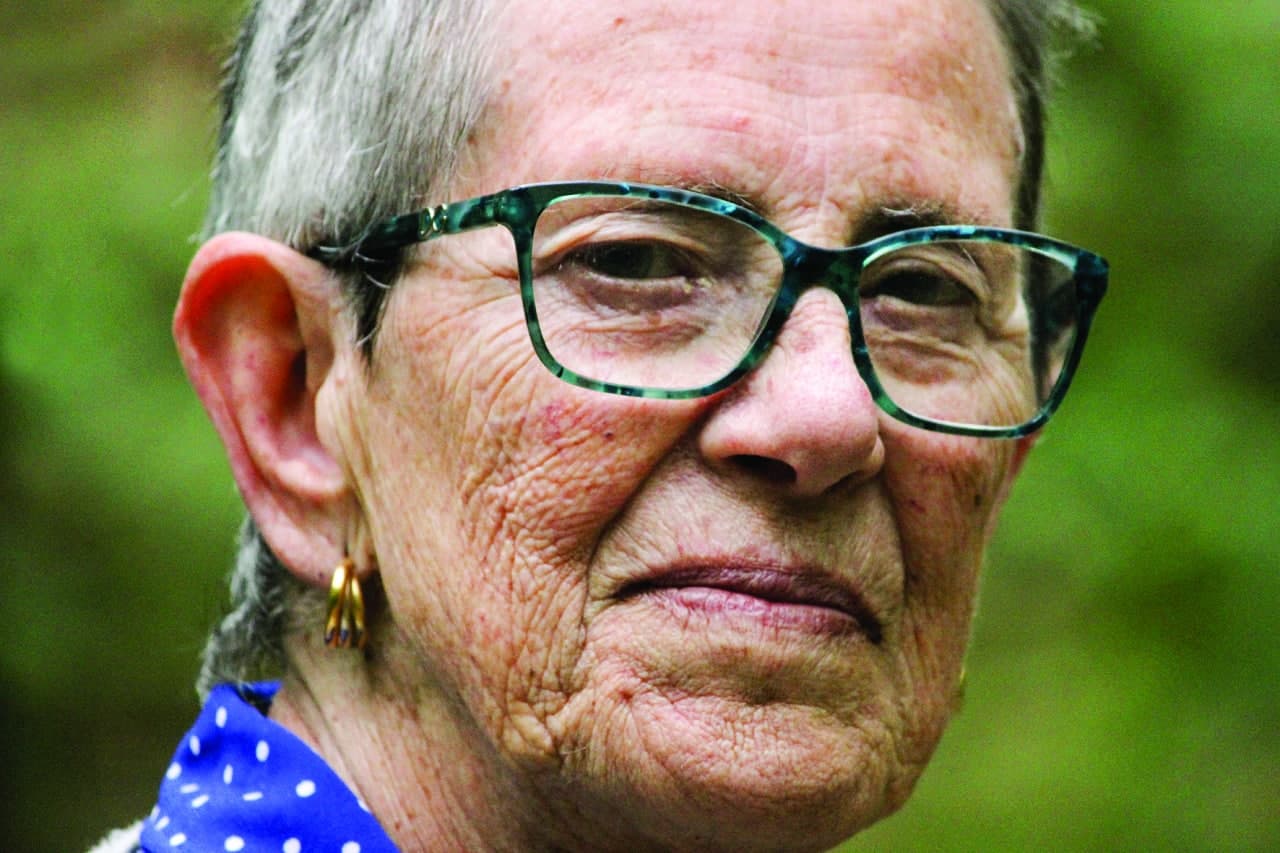
Teresa Sarobe Etxeberria (Etxalar, 1940), Franco hil ondoko lehen alkate andre izan genuen Nafarroan. Badu urguilu zuzen bat, hainbat sos bildu ahal izan baitzituen herrira. Ez zen dena gozo izan, ordea, gogotik estutu baitzuten ezkerretik, mehatxu, telefono dei eta bertze. Bertzalde, William Douglass antropologo amerikarrak Etxalarren egindako ibiliaren lekuko zuzena da, 1960ko hamarkadaren hasieran etxekoen Buxungoborda baserrian hartu baitzuten. Teresa Sarobek aunitz urte bizkarrean, historialari behar luke, unibertsitate doktore zailduaren almazena baitu bere barnean gordea.
In 1983, municipal elections in Navarra, and among the news they highlighted several newspapers, that a woman would be mayor of Etxalar, because it means that you are presiding over an independent candidacy. How did that come about? A
woman who had a restaurant on the palomeras in Etxalar told me for the first time: “What, are we going to put you on the list?” I asked my late husband, Antonio [Sansinena], who had been mayor before, from 1973 to 1975. When Franco died he was mayor. He worked at the factory and also required the secretary to work, because he was coming at eleven o'clock in the morning and going straight into the first café as a bar. And once came a woman from the house, making a two-hour journey, almost more in the Baztan than in Bortzirieta, to ask the secretary to ask him for the birth certificate, and he called him to come one day later! That secretary had collaborators, but nothing. It was useless. Then, Antonio told him that he would not accept, forced him to work, and after a while, when he had a panacea, the secretary took benevolence as part of some land that was ours, and went to trial against Antonio. In the sand, her husband resigned.
And despite that experience at home, did you say yes to that woman?
I asked at home and they said yes, there was going to be a new life experience. I showed up and won. I was elected mayor, and at that time, 300 million pesetas went into Etxalar. Only Mayor in Navarra. In his capacity as Mayor, a meeting was held in Santiago de Compostela (Galicia), in which women from France, Belgium and many places in Spain and Europe participated, with political responsibility in the municipalities. There were three councillors who had gone through Pamplona, but I was the only mayor. There I asked about the aid, because in 1983 they were floods, not as bad as in Bilbao, but also in Etxalar the water did quite badly.
And what is the experience?
I remember that after the election of mayor we had a meeting in Bera, in which [Luis] Roldan, delegate of the Spanish Government in Navarra, and there was another meeting in Etxalar, in which we wanted to improve sanitation, because with the rain water always escaped from one stream and from the other, from the sewage and from all places. During the Etxalar meeting, the diners remembered them to eat the palomers. There were architects, water technicians and public works, engineers -- a lot of people. When we were eating, I talked to each other and learned that there and here there were aid, from the Government of Navarre, from the water consortium, from one to the other, and they entered Etxalarrerat to renew almost 300 million sanitation. Because Etxalar didn't have a hard time making a great piece like this. And what's more, not only to do 100 percent of that work, but also to pave the streets. In the sand we collected 106% of the work! I was also with Socialist Victor Manuel Arbeloa. What if I wanted to get out the soda for the people!

You were in an independent candidacy, but is it independent?
I do not know what things are like in other peoples. I was independent, that is what I can say. But I was treated like anti-Euskaldunes, it was about antivasca. But what about it? Why not I was as Basque as they wanted! They wanted a lot of things, but I didn't think it was possible. And I would say to them, “Do I antivasse? That's why my kids have those names! Lorea, Aitor and Amagoia! Do not know where those names have come from!” because they did not know that they had been taken from the book Amaya or the Basques in the 8th century of Navarro Villoslada. “You are not Basque at all!” I said to you, too.
"When her mother came home with the children, without her husband, the police took away all the funds she had at home. [Meliton] was Apples."
We've created you in Etxalar, you have a family history.
You know something! I was born in the new palace, because that is a house, a little before Agerre. A beautiful house, although it is now deteriorated. We were four brothers, I was the fourth. His father and mother were incarcerated in 1929 and his first brother was founded in the 32nd year. I didn't want to be a soldier, it was Txilerat. He wanted to go to North America, but he went to the consulate in Bilbao and asked if he knew the sheep. With so much whispering, we had cows at home, we had goats, we had everything, but we didn't have sheep! We never had sheep. They asked him how many teeth he had the sheep, when he changed his teeth… And, knowing nothing, he was kicked out of liver in the consulate. More or less, liver.
Before, it’s also a matter for your father…
His father, Anjel Sarobe, wanted to go to France in time of war in Spain. The mother was also sent there, with two children and pregnant awaiting the third, and there she had to have her family in France. Then, waiting for me, my mother returned to Etxalar. A little later the war broke out in Europe! The father came home again and went here as a prisoner, a refugee or a refugee. In Etxalar, there were needs, there were good people, and they helped our family.
What about Meliton Manzanas?
Yes, then. When her mother came home with the children, without her husband yet, the police took away all the money she had at home. [Meliton] was Apples. The Irun police were then killed. Come here and goodbye! Take away the money! My mother thought I had two thousand pesetas. Here was a policeman in front, who came every Sunday to our hostel, with whom there was nothing, but with whom Manzanas triumphed, they went to our house and took all the money that he hit. Goodbye! Apples had rights everywhere, on the road, on trucks, on the hamlet, on the street, in every corner. The other cop, the head of here, was always worried, why Manzanas brought money from our house. When I was mayor, I remember how the letter was written to me by the former policeman here, who always had the concern inside. I was coming every Sunday to play a game with our friends. And he worried about it inside.
Civil guard, military, carabiner... there was everything in a time of the Etxalar.
Yeah, here was everything. There were soldiers, civil guards, police, aviation, assault… of everything in Etxalar. Up to 3,000, who was here at the front! And the civil guards were incarcerated with the village girls. There were families, three girls, Esposadas with three civil guards. His smuggler brothers and his three sister-in-law civil guards. And some lived with others! That's what it was like in time. It was normal.
Forgive, Teresa, you are a Basque, but there you go from Basque to Spanish and from Spanish to Basque...
How you get to my head, I drop it in one or another… William says that I have a very living Basque, which is worth many times, but so I am, sometimes in Basque and others in Spanish.
William?
How do you do it? William Douglass. You know who it is, adjust. Because here Douglass was William, William, Bill, and William nothing else. When he came to Etxalarrerat in 1964, he walked into our old inn and asked where he could capture a house. The host then called our aunt and asked if Agerea's house was going to be free for William. And yes… The people of Agerra were not any, the ones of that house fought in Amaiur! William first lived in that house, but then went to the house of our cousin, Buxungoborda.
"There were families, three girls, wives with the three civil guards. His smuggler brothers and his three sister-in-law civil guards."
Douglass researched Etxalar and Aulesti in his thesis.
Yeah, here we had time, and then I would come every time I came. It's still coming. I remember in Etxalar talking about people treating him well, but not telling him anything. He did the research, went to a hamlet and always asked and asked. And people, then, didn't easily understand William's work. “Errazu, but why does this American have to wonder so much? Because he says nothing!” And, in a later period, the same applies: “This man has been here and asked how many children there are in our house, who has been given the inheritance, and whether we had the writings of the dwarf or the house, which he wanted to see, and this and that.” On many occasions we did not know the answer, since the scriptures and these things were not spoken at that time. And William went from one hamlet to another, always asking. The man seemed a bit of a fix, why here he was also smuggling.
.jpg)
In the mid-1960s, there was still smuggling…
Yes. There was always something, either cows or horses or paila or penicillin or velvet -- or people! In Errate, out of the window of Buxungoborda, I could see how the Portuguese were going along the path… That was a pitiful thing! Shoes with heel and the mountain! “Go up that pile and on the other side you are in France!” they spoke to the Portuguese, and on many occasions it was true, but on many occasions it is a lie!
Were you fooling?
Yes, then! It wasn't always a deception, sometimes there was an accident. Here was a twenty-three-year-old boy who fell and died in the canal. It fell or was knocked down. Nobody knows. It has not fallen, now the canal is covered but then not. Nobody knows what it was. This Portuguese boy was buried here and the sosos, the wallets and all who were on top were sent to the family. The Portuguese child is buried in the cemetery here. It doesn't make the month there. This happened when William came here. Then the Portuguese were many more here! Then, the smuggling was refined. That big smuggling of smuggling ended in 1960. In 1962, there was no more smuggling here.
What was the last thing about smuggling?
Factory jobs. In the case of Etxalar, the Lesaka lamination or lamination plants. It began to be built in 1958, while in Bera there was the Palm Grove, another large factory. When people wanted to start work, they went to the factory, told them they wanted to work, and they figured it out. “Come tomorrow at 8 a.m.!” And people were surprised to hear that, and they called it. “If you want to start working, welcome. We need people.” So the companies were growing up here. Around 1964, there was a great movement. The baserritars, they all came to work in the factory! And the people who used to leave the Five Villas to America were no more. Here people started to make money, and there's America.
* * * * * * * * * * *
“Once, in 18
years I used to have breakfast in the farmhouse. I noticed a conversation outside. We look out the window and some men eating figs from our trees. Starvation. 'What should I do? You can catch me here, I alone!’ I took myself and put my head out, took the cocoa on my back and went to the grass. ‘Even if you follow me, you will not catch me on the mountain!’ I was frightened by the Portuguese. He also made a dream with them.”
SOSA
“When people started to the factory, they made money, but they were spent on profits, you couldn’t raise money. In America, yes, where the pastor was always on the mountain, and the money was rising. My husband was also in California for three years, but after opening the factories here, it wasn't worth going there."
JOHONNY TTIKIA “William
[William Douglass] He was in Buxungoborda, there he had his wife, Patricia, and the one-year-old boy, Johnny. We used to speak in Euskera, and the child also in Euskera. In Spanish with his parents, but Johnny, a tiki in Euskera, and the year he did it in Buxungoborda, he understood very well what we were talking about in Euskera, and he did some tertulias.”
LAST WORD
TRAP, ONE TIME
“There was one here, who cheated. I would say to the Portuguese: ‘Go from there, then from here, and you are going to be in France tomorrow.’ And lie! Either I left them in Belate, in Elizondo, or somewhere else. He cheated. The Portuguese have learned and, once, they have caught the one who cheated and crushed the game. Shredder! The trap can be made once, but not cumulatively.”
Kirola eta oroimena uztartuko dituzte, bigarrenez, mendi-martxa baten bitartez. Ez da lehiakorra izanen, helburua beste bat delako. La Fuga izeneko mendi martxak 1938ko sarraskia gogorarazi nahi du. Ezkabako gotorlekuan hasi eta Urepelen amaituko da. Maiatzaren 17an eginen dute.
Fusilamenduak, elektrodoak eta poltsa, hobi komunak, kolpismoa, jazarpena, drogak, Galindo, umiliazioak, gerra zikina, Intxaurrondo, narkotrafikoa, estoldak, hizkuntza inposaketa, Altsasu, inpunitatea… Guardia Zibilaren lorratza iluna da Euskal Herrian, baita Espainiako... [+]
Gogora Institutuak 1936ko Gerrako biktimen inguruan egindako txostenean "erreketeak, falangistak, Kondor Legioko hegazkinlari alemaniar naziak eta faxista italiarrak" ageri direla salatu du Intxorta 1937 elkarteak, eta izen horiek kentzeko eskatu du. Maria Jesus San Jose... [+]
Familiak eskatu bezala, aurten Angel oroitzeko ekitaldia lore-eskaintza txiki bat izan da, Martin Azpilikueta kalean oroitarazten duen plakaren ondoan. 21 urte geroago, Angel jada biktima-estatus ofizialarekin gogoratzen dute.
Bilbo Hari Gorria dinamikarekin ekarriko ditu gurera azken 150 urteetako Bilboko efemerideak Etxebarrieta Memoria Elkarteak. Iker Egiraun kideak xehetasunak eskaini dizkigu.
33/2013 Foru Legeari Xedapen gehigarri bat gehitu zaio datozen aldaketak gauzatu ahal izateko, eta horren bidez ahalbidetzen da “erregimen frankistaren garaipenaren gorespenezkoak gertatzen diren zati sinbolikoak erretiratzea eta kupularen barnealdeko margolanak... [+]
1976ko martxoaren 3an, Gasteizen, Poliziak ehunka tiro egin zituen asanbladan bildutako jendetzaren aurka, zabalduz eta erradikalizatuz zihoan greba mugimendua odoletan ito nahian. Bost langile hil zituzten, baina “egun hartan hildakoak gehiago ez izatea ia miraria... [+]
Memoria eta Bizikidetzako, Kanpo Ekintzako eta Euskarako Departamentuko Memoriaren Nafarroako Institutuak "Maistrak eta maisu errepresaliatuak Nafarroan (1936-1976)" hezkuntza-webgunea aurkeztu du.









